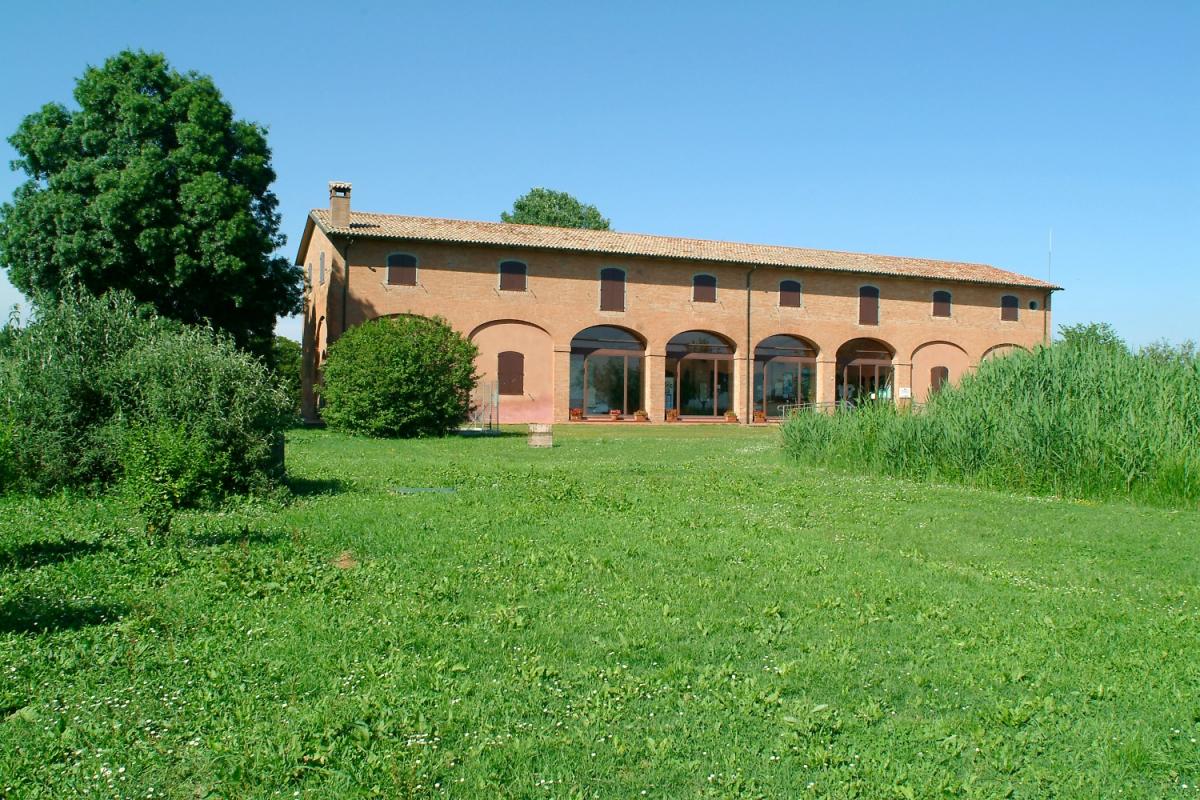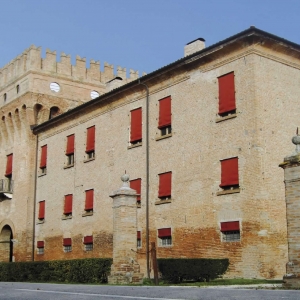ARGENTA
Where is located
Argenta is located in the centre of the triangle formed by the cities of Ferrara, Ravenna and Bologna, in the Po Delta Park.
When to go there and what to see
The town, probably of Roman origin, is now one of the largest towns in the Ferrarese region and has a modern appearance, the result of reconstruction after the Second World War.
Just outside the town centre stands the suggestive Pieve di San Giorgio, the oldest within the Ferrara area (dating back to the 6th century) with an admirable marble portal built in 1122 depicting the months and work carried out in the fields.
From a naturalistic point of view, the Argenta area is one of the most interesting in the province, thanks to the presence of one of the few ecomuseums established in Italy and the nearby Valleys - a paradise for water birds and an important destination for nature lovers.
The Argenta Ecomuseum tells the story of the environment, the history and the culture of the local area and its people, in an evocative itinerary through three museum stations and one of a naturalistic kind. It expresses the character of both the local territory and the surrounding communities, taking care of this extraordinary heritage.
The Valley Museum - with the neighbouring Argenta Valleys - documents the evolution of the natural environment and Man's interventions in an area that has always been dominated by water.
The Museum of Land Reclamation is a unique example of industrial archaeology and, at the same time, an active shipyard. The Civic Museum, located in the church of San Domenico, in Argenta, consists of the Municipal Art Gallery and the archaeological section, to document the civic and artistic life of the town. The Valley Museum and the Museum of Land Reclamation are recognised as “quality museums” by the Emilia-Romagna Regional Institute for Cultural and Natural Artistic Heritage. It is also crossed by the “Wine and Flavour Route”.
Not to be missed
The Argenta Valleys are among the largest freshwater wetlands in northern Italy, recognised as being of international interest in 1976 under the Ramsar Convention and the 6th station of the Emilia-Romagna Po Delta Park. These include the Campotto/Bassarone and Vallesanta expansion reservoirs and the Traversante hygrophilous woodland, covering a total of approximately 1600 hectares.
The Campotto Oasis and the Argenta Ecomuseum provide an itinerary to discover and explore the 6th Station of the Po Delta Regional Park, one of the most fascinating areas of the park, home to an extraordinary natural heritage and a great variety of plant and animal species.



